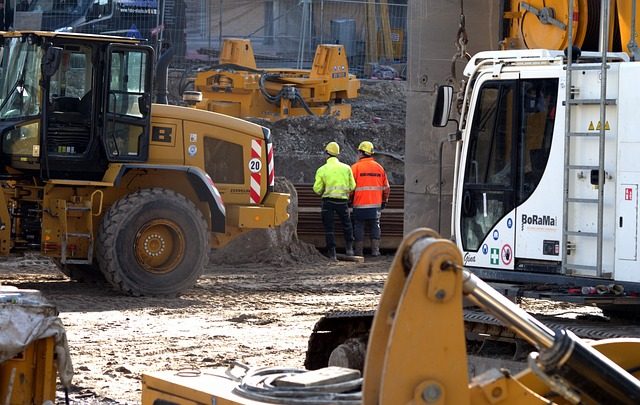A construction management degree equips students with the essential skills needed to navigate the complexities of the construction industry. This degree not only encompasses project management but also integrates engineering and business knowledge, creating a solid foundation for a successful career. As the demand for skilled professionals in this field continues to grow, understanding the various career pathways becomes increasingly important.
In this article, we will explore the breadth of opportunities available through a construction management degree, including potential job roles, salary expectations, and the skills necessary for success.
Table of Contents
What Can You Do With A Construction Management Degree?
A construction management degree opens the door to a variety of fulfilling career paths. Graduates can take on roles that require a blend of technical know-how and managerial skills. Here are some common career options:
- Construction Manager: Overseeing construction projects from inception to completion.
- Project Estimator: Estimating project costs and resources.
- Site Engineer: Managing on-site activities and ensuring compliance with regulations.
- Health and Safety Manager: Ensuring workplace safety and adherence to health regulations.
- Sustainability Consultant: Advising on environmentally sustainable construction practices.
These roles not only allow graduates to apply their knowledge but also offer diverse experiences within the construction sector. With a strong foundation in both technical and business aspects, professionals are well-prepared to tackle industry challenges and innovate in their respective fields.
What Are The Best Job Options For Graduates In Construction Management?
The job market for construction management graduates is robust and varied. Graduates can find positions in several sectors, each with its own unique requirements and opportunities. Some of the best job options include:
- Construction Manager: Responsible for planning, coordinating, and supervising construction projects.
- Quantity Surveyor: Managing project costs and budgets effectively.
- Project Manager: Overseeing the entire project lifecycle, including scheduling and resource allocation.
- Site Supervisor: Directing and supervising construction work on-site.
- Building Inspector: Ensuring that construction meets safety and zoning regulations.
Each of these roles offers different responsibilities and challenges, making them suitable for various skill sets and interests. The versatility of a construction management degree means graduates can tailor their career paths to align with their strengths and aspirations.
How Do You Become A Construction Manager?
Becoming a construction manager typically requires a combination of education and practical experience. Below are the general steps to pursue a career in this field:
- Obtain a Degree: A construction management degree or a related field is essential.
- Gain Experience: Internships or entry-level positions provide invaluable on-site experience.
- Develop Skills: Focus on both technical and soft skills such as communication, leadership, and problem-solving.
- Consider Certification: Obtaining certifications such as the Project Management Professional (PMP) can enhance employability.
By following these steps, aspiring construction managers can position themselves for success in a competitive job market. The combination of formal education and hands-on experience is invaluable for navigating the complexities of construction projects.
What Is The Salary Range For A Construction Management Degree?
The salary range for graduates with a construction management degree can vary based on several factors, including location, years of experience, and specific job roles. Generally, graduates can expect competitive salaries.
According to industry reports, the median annual salary for construction managers exceeds $100,000, with many factors influencing this number:
- Entry-Level Positions: Typically start around $60,000 to $70,000.
- Mid-Level Roles: Can earn between $80,000 and $100,000, depending on experience and responsibilities.
- Senior-Level Positions: May exceed $120,000, especially in high-demand markets.
These statistics highlight the lucrative potential of a career in construction management. Graduates entering this field are well-positioned to achieve financial success, particularly as they accumulate experience and take on more advanced roles.
What Are The Career Progression Opportunities In Construction Management?
Career progression in construction management is promising, with numerous opportunities for advancement. As professionals gain experience and build their networks, they can explore various paths, including:
- Senior Project Manager: Oversees large-scale projects and manages teams of construction managers.
- Construction Executive: Responsible for strategy and business development within construction firms.
- Consultant: Providing expert advice to firms on construction practices and project management.
- Entrepreneur: Starting a personal construction business or consultancy.
Advancement typically requires continuous learning and skill enhancement, which can be achieved through additional certifications or specialized training. The dynamic nature of the construction industry ensures that dedicated professionals can find rewarding pathways to elevate their careers.
What Skills Are Required For Success In Construction Management?
Success in construction management demands a diverse skill set that encompasses both technical proficiency and interpersonal abilities. Here are key skills necessary for a successful career:
- Project Management: Ability to effectively plan, execute, and close projects.
- Communication: Strong verbal and written skills for collaboration with various stakeholders.
- Problem-Solving: Quick thinking and adaptability in addressing challenges on-site.
- Technical Knowledge: Understanding engineering principles, construction materials, and safety regulations.
- Leadership: Guiding teams and managing resources efficiently.
These skills are essential for managing projects successfully and ensuring that all aspects of construction run smoothly. Additionally, a commitment to continuous professional development can help construction managers stay relevant in an ever-evolving industry.
Related Questions About Construction Management Careers
Frequently Asked Questions About Construction Management Degrees and Careers
What is the highest paying job in construction management?
The highest paying job in construction management is generally the role of a Construction Executive or a Senior Project Manager. These positions often involve overseeing large projects, managing teams, and making strategic decisions that can greatly impact the success of construction firms. Salaries for these roles can exceed $150,000 annually, particularly in metropolitan areas with high demand for skilled professionals.
What degree is best for construction management?
The best degree for construction management is typically a bachelor’s degree in construction management or a related field such as civil engineering or architecture. These programs provide a comprehensive curriculum that covers essential topics like project management, finance, and building codes, preparing graduates for the challenges they will face in the field.
What is the difference between a construction manager and a project manager?
While the terms are often used interchangeably, there are distinctions between a construction manager and a project manager. A Construction Manager is primarily focused on the construction site and the day-to-day operations of the project, ensuring that everything runs smoothly. In contrast, a Project Manager may take a broader role, overseeing multiple aspects of a project, including budgeting, scheduling, and stakeholder communication.
What do construction project managers do?
Construction project managers are responsible for planning, executing, and closing construction projects. This includes developing project plans, managing budgets, coordinating with subcontractors, ensuring compliance with regulations, and communicating with stakeholders throughout the project lifecycle. Their role is critical in ensuring projects are completed on time and within budget while maintaining high-quality standards.







